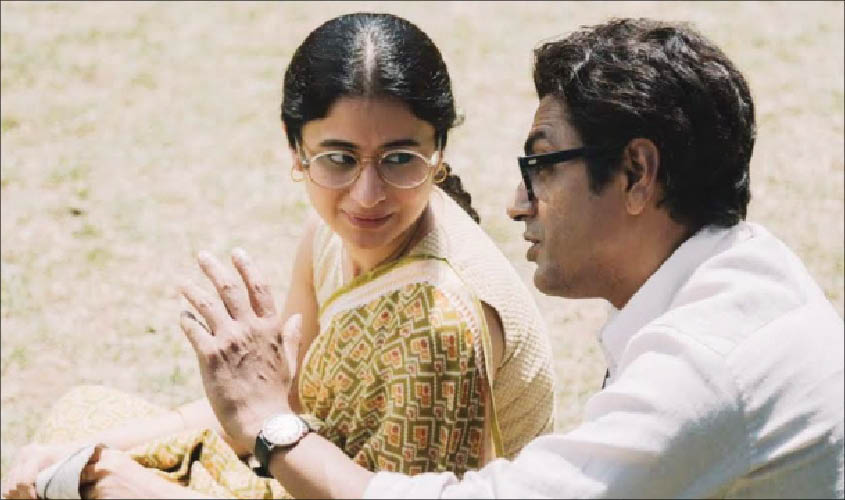There is a scene in Nandita Das’ Manto wherein Saadat Hasan Manto, the eponymous writer on whom the film is based, tries consoling his wife. “Don’t worry. I will write enough so you will never starve,” he says. The wife retorts, “That’s my worry. It’s because of your writing that we will starve.” Perhaps, there cannot be a better introduction to the master Indian-Pakistani short story writer who spent his life fighting obscenity charges against his works. But in spite of the opposition from the state, Manto remained a much celebrated writer throughout his life whose death, at the young age of 42, completed his apotheosis.
Manto is far from being a perfect biopic but its merits outnumber its weaknesses. The strongest aspect of the film is Nawazuddin Siddiqui, who is nigh perfect as Manto—if anything, Siddiqui’s Urdu accent is slightly wishy-washy in some places. Siddiqui, who famously charged one rupee as his acting fees for Manto, is best known for playing gangster characters, and so Nandita’s casting choice did raise a few eyebrows initially. But Siddiqui stands absolved. For he makes us feel Manto’s inner pain and turmoil, effortlessly transforming into the character. And, in doing so, Siddiqui has left a high benchmark for anyone who endeavors to essay the character in the future.
But, unlike her inspired casting choice, Nandita Das’ vision of Manto comes across as rather wishful. In an attempt to weave both Manto’s life and his stories together in a single movie
A major issue with the film is that many of the secondary albeit important characters aren’t explored properly, including those of Ismat Chughtai and Manto’s wife Safiyah. But, despite the shortcomings, Manto succeeds in presenting a haunting portrait of a troubled artist and one of 20th century’s most controversial figures. Saadat Hasan Manto’s unique ability to hold a mirror to the society often made people uncomfortable. Unlike many writers of his time he chose to touch upon issues that most people like to turn a blind eye to. As a time when escapism is taking over everyone’s imagination, Manto’s brutally honest writings continue to be a torchbearer for the posterity. And Das’ film is a testament to his formidable penmanship that’s best captured in a scene wherein Manto declares to a Lahore-based publisher, “Just because I write with a pencil it doesn’t mean that you would be able to erase it”.

